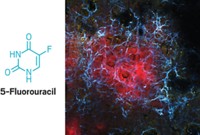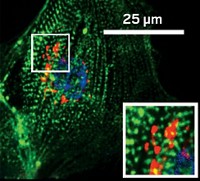Advertisement
Grab your lab coat. Let's get started
Welcome!
Welcome!
Create an account below to get 6 C&EN articles per month, receive newsletters and more - all free.
It seems this is your first time logging in online. Please enter the following information to continue.
As an ACS member you automatically get access to this site. All we need is few more details to create your reading experience.
Not you? Sign in with a different account.
Not you? Sign in with a different account.
ERROR 1
ERROR 1
ERROR 2
ERROR 2
ERROR 2
ERROR 2
ERROR 2
Password and Confirm password must match.
If you have an ACS member number, please enter it here so we can link this account to your membership. (optional)
ERROR 2
ACS values your privacy. By submitting your information, you are gaining access to C&EN and subscribing to our weekly newsletter. We use the information you provide to make your reading experience better, and we will never sell your data to third party members.
Biological Chemistry
Manipulating Stem Cells Through Their Metabolites
Stem-cell differentiation can be regulated by controlling unsaturated metabolites
by David Pittman
May 10, 2010
| A version of this story appeared in
Volume 88, Issue 19
Stem cell differentiation—the process of turning a blank stem cell into a specific type of cell—can be regulated by controlling the reduction of stem cell metabolites, chemists at Scripps Research Institute have found (Nat. Chem. Biol., DOI: 10.1038/nchembio.364). Stem cells contain a pool of unsaturated molecules that decrease as stem cells mature. Oscar Yanes, Sheng Ding, and Gary Siuzdak discovered that they can inhibit differentiation by blocking certain enzymes that reduce highly oxidized metabolites in the pool. In addition, the researchers found they can expedite differentiation and obtain a greater number of mature cells by adding metabolites, such as the eicosanoid shown. Understanding the chemical basis for how stem cells mature opens the door for scientists to better manipulate differentiation to meet the different needs of patients who can benefit from stem cell therapies. For example, the Scripps team turned stem cells into neurons and cardiac cells, but Yanes says the process could work to control turning stem cells into any kind of mature cells.






Join the conversation
Contact the reporter
Submit a Letter to the Editor for publication
Engage with us on Twitter